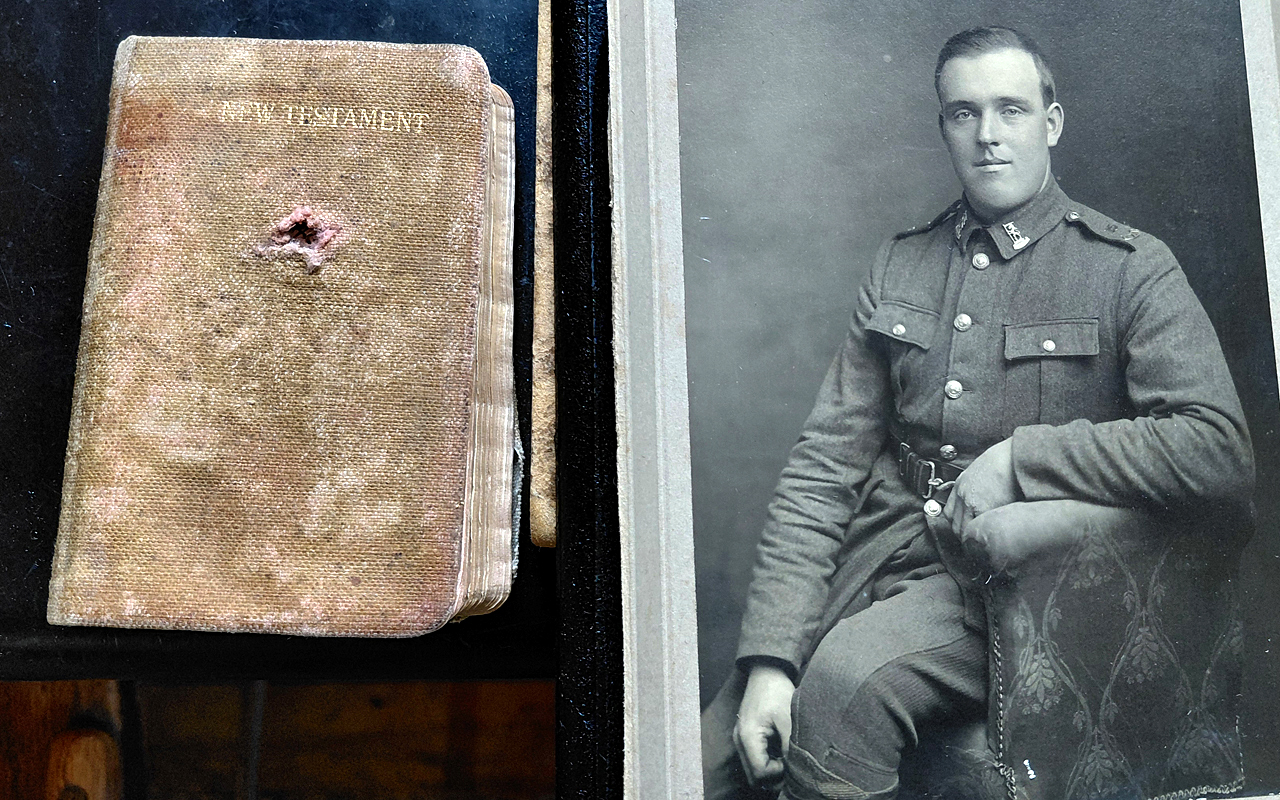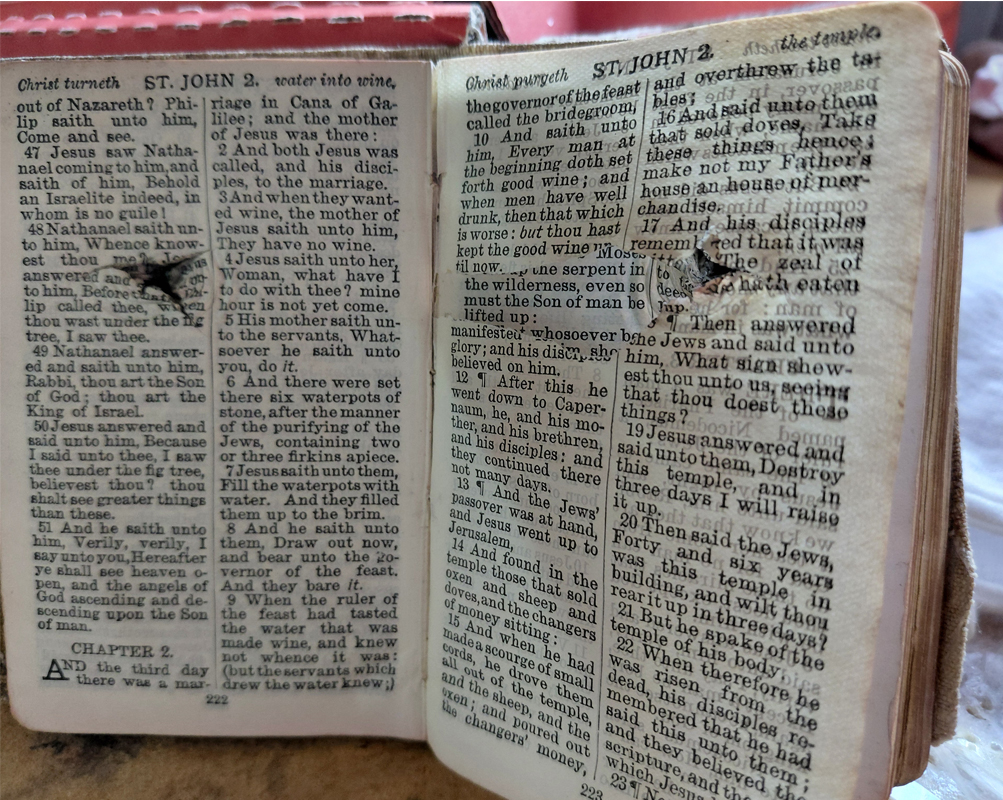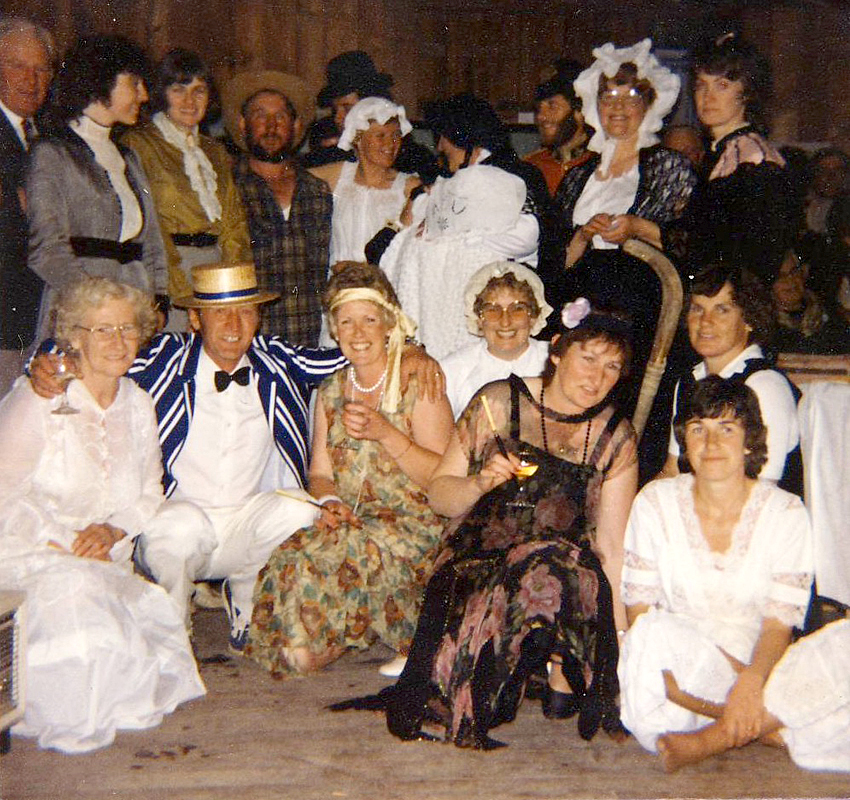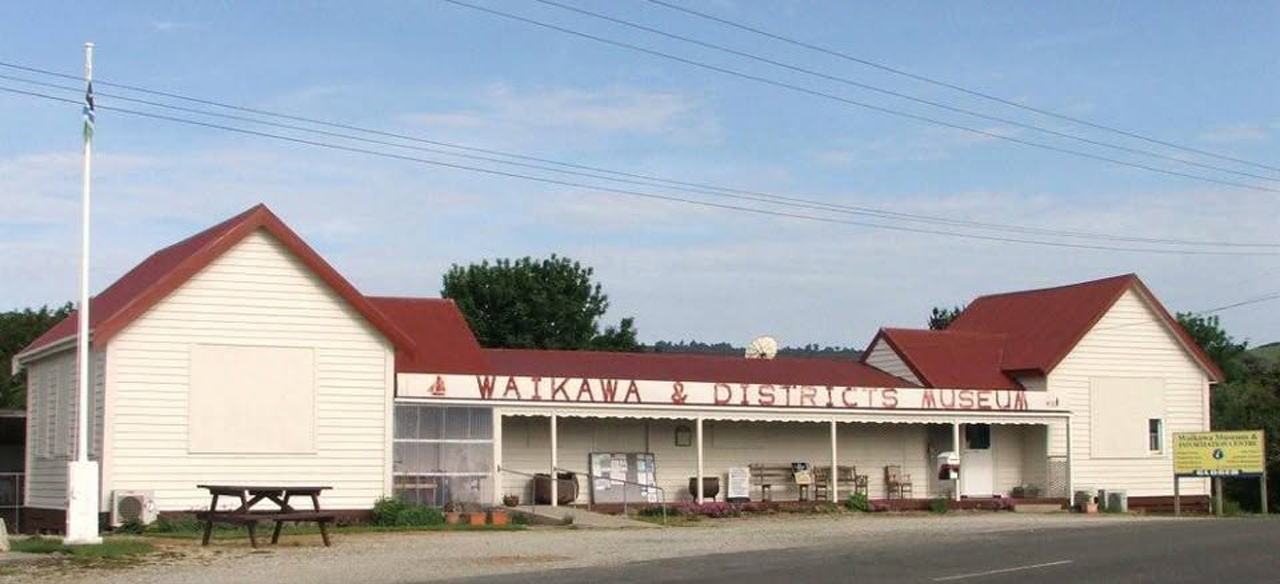From Bible Bullets to Bush Cattle - Waikawa Museum Marks 50 Years
Sue Fea © the Southland App
15 November 2025, 7:52 PM
 Local WWI soldier John Shankland's bible, with the fatal bullet hole still visible, is just one of the treasures to be found at the Waikawa Musueum. Photo: Supplied
Local WWI soldier John Shankland's bible, with the fatal bullet hole still visible, is just one of the treasures to be found at the Waikawa Musueum. Photo: SuppliedFrom artefacts telling the stories of local wartime tragedies and historic rural fashion, to the restored Tokonui Jail and its only drunk and disorderly prisoner, Southland’s Waikawa & Districts Museum is celebrating 50 years this coming week.
That’s 50 years of hard work by an enthusiastic, but resourceful, small team of volunteers who have turned a historic hub of local buildings into an increasingly popular destination packed with gems of local history.
Museum president Gay Lamb, who spent most of her life farming at Quarry Hills about 10km away, says it’s all thanks to Southland Education Board member ‘Mrs T.A. Buckingham’, who came up with a great idea back in 1972.
“She found out that Waikawa School was going to be closed back then and thought the building would make a great museum for the district," Gay, who’s been involved since those founding days, says.
“We opened in 1975 from small beginnings, and we’ve always been mostly funded through donations.”
The original museum was opened in the old Waikawa School building, but nothing goes to waste in the country.
When it was time to grow in 1982 the group added on the old Southern Star Rugby Clubrooms building from nearby Niagara.
Further expansion in 1988 saw them add the old Mokoreta School onto the right-hand end to house more displays and artefacts.
“All the artefacts have come from around the local area,” Gay says.
Among the most moving memorabilia is the original New Testament Bible of local Tokonui man John Shankland, who was shot and killed during World War I, the bullet piercing straight through the Bible in his pocket.
“The bullet is still in the Bible.”
There’s also a beautiful tapestry on display that the local McKenzie brothers from Progress Valley bought for their mother in Egypt during World War I.

The WW1 bible which still holds the bullet that tragically took the life of young Tokonui soldier John Shankland. Photo: Supplied
“They posted it home to her the day before they were both killed in action,” Gay says.
“A member of the McKenzie family had been going through belongings of those passed and rang us to ask if we’d like it, so we went and picked it up.”
Lifelong local, 87-year-old Maurice Yorke, born just before World War II broke out, is looking forward to Sunday’s (23 November) museum celebration.
He says the Waikawa farming district was thriving post war, particularly due to timber production from the local sawmill, and a crayfish boom.
The influx of bushmen and sawmill workers to the area greatly boosted the local Niagara School roll.
Progress Valley School, which Maurice attended, was built by the sawmill company and when Maurice was at school it was just the children of two farming families – his and another, that made up the roll.
“The post war economic boom was such that there were five schools in our area back then,” Maurice recalls.
“I remember Quarry Hills, Niagara, Progress Valley, Waikawa and Haldane Schools."
"There was no road between Haldane and Waikawa and we had to walk there via the beach to see our cousins.”
There was no electricity and Maurice rode to school on a horse with his sister.
“If I got out early, I’d get a ride home in one of the big logging trucks.”
After the war local roads, communities and transport expanded and the area became known as South Catlins, as it is now, he says.
“We drove our wild bush cattle from Progress Valley to Tokonui to load them onto the train. In 1952 the first cattle were transported off our farm by road,” he says.
The rail service closed in the 1960s.
Married to Meree for 60 years, Maurice worked hard developing their farm, enjoying recreational fishing and rugby, playing for Niagara’s Southern Star Club, and “drinking beer”, he says, with a grin.

An enthusiastic bunch of models dress up in period garb for a Waikawa Museum fundraiser. Photo: Supplied
Gay says the locals have thrown many a fun fundraiser to support the museum, including an old-style dance in Turn of the 20th Century costume and a mock wedding featuring a spot of cross-dressing Tokonui style, and wine and cheese evenings.
They throw a good bash, so members of the public are invited to get along to the 50th birthday celebrations on Sunday (23 November) and help mark the milestone.
The museum will be open from 10am with light music by Sharon Bruce (Hayes), of The Possum Pickers, and a museum quiz before afternoon tea is served from 2pm at the Waikawa Hall.
Southland District Mayor Rob Scott and councillors Paul Duffy and Julie Keast have been invited to be part of the occasion.
The Southland District Council and its Regional Heritage Trust, Community Trust of Southland and donations from the local Toi Toi Lions Club, Mataura Licensing Trust and Vetco keep the museum buildings operating.
Local volunteers keep the doors open Fridays, Saturdays, Sundays and Mondays – 10am until 5pm at present, and Gay says they definitely need more volunteers.
One of their archives almost blew away during the recent huge winds and storm that battered Southland.
The local 98-year-old St Mary’s Anglican Church, which the museum group are also custodians of, was blown off its piles in the storm, suffering some damage.
“We’re waiting on the insurance claim to come through,” Gay says.

Waikawa & Districts Museum. Photo: Supplied
The museum group are also custodians of the historic Tokonui Jail, which was moved to Waikawa, and the local Gangers’ Hut which provided shelter and warmth for railway gangs working on the line.
“They’d go in there when it was raining and play cards and keep warm by the fire,” she says.
“There’s only ever been one person in the Tokonui Jail, and he was there for being drunk and disorderly.”
The jail has been closed since the 1980s and the group moved it up to Waikawa.
“People love coming here because everything’s out on display and nothing is behind glass,” Gay says.
“They’re really starting to seek us out.”
Sue Fea is a senior journalist with more than 40-years experience covering police, social and general news in the southern regions.